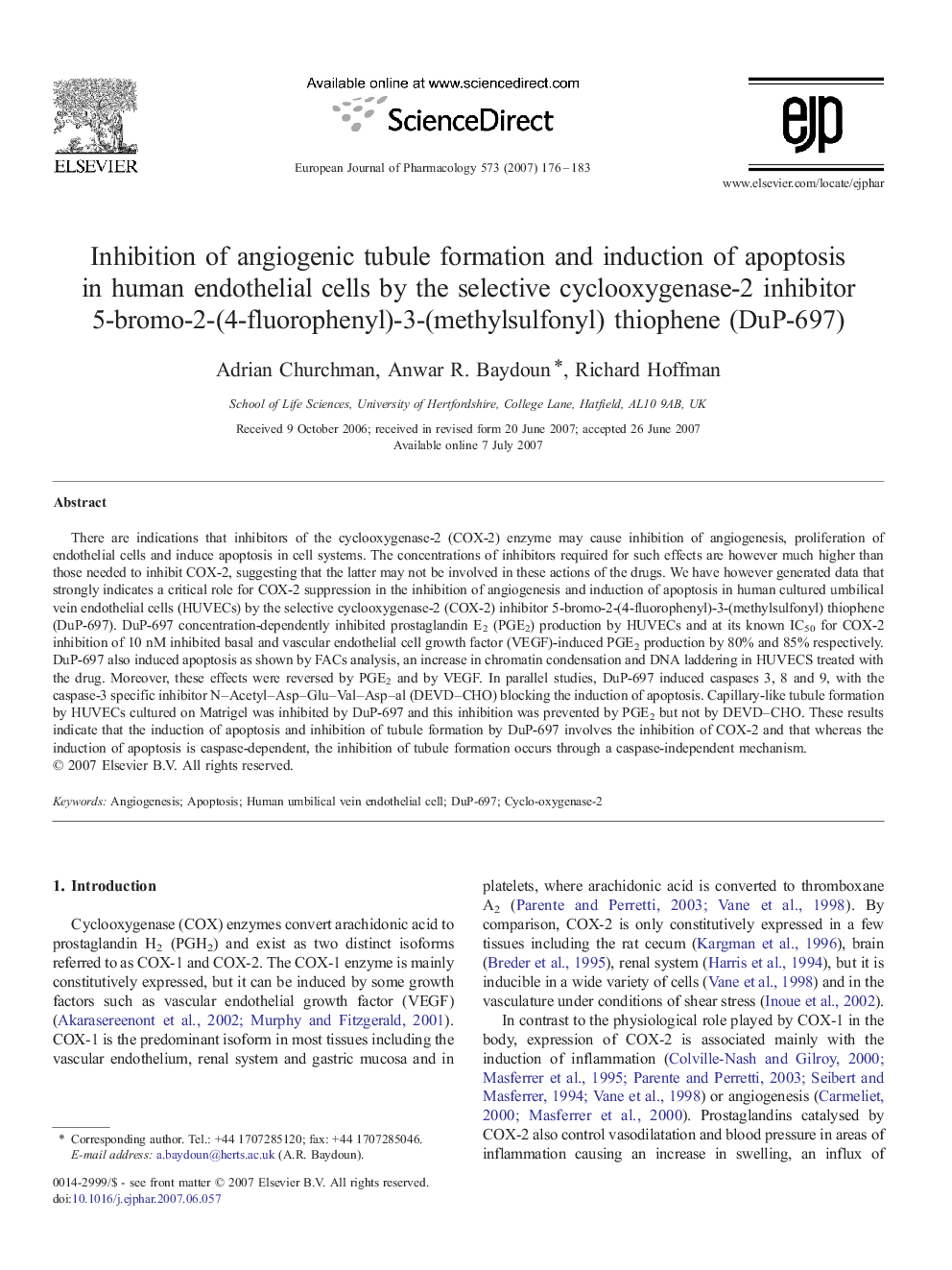| Article ID | Journal | Published Year | Pages | File Type |
|---|---|---|---|---|
| 2535881 | European Journal of Pharmacology | 2007 | 8 Pages |
Abstract
There are indications that inhibitors of the cyclooxygenase-2 (COX-2) enzyme may cause inhibition of angiogenesis, proliferation of endothelial cells and induce apoptosis in cell systems. The concentrations of inhibitors required for such effects are however much higher than those needed to inhibit COX-2, suggesting that the latter may not be involved in these actions of the drugs. We have however generated data that strongly indicates a critical role for COX-2 suppression in the inhibition of angiogenesis and induction of apoptosis in human cultured umbilical vein endothelial cells (HUVECs) by the selective cyclooxygenase-2 (COX-2) inhibitor 5-bromo-2-(4-fluorophenyl)-3-(methylsulfonyl) thiophene (DuP-697). DuP-697 concentration-dependently inhibited prostaglandin E2 (PGE2) production by HUVECs and at its known IC50 for COX-2 inhibition of 10Â nM inhibited basal and vascular endothelial cell growth factor (VEGF)-induced PGE2 production by 80% and 85% respectively. DuP-697 also induced apoptosis as shown by FACs analysis, an increase in chromatin condensation and DNA laddering in HUVECS treated with the drug. Moreover, these effects were reversed by PGE2 and by VEGF. In parallel studies, DuP-697 induced caspases 3, 8 and 9, with the caspase-3 specific inhibitor N-Acetyl-Asp-Glu-Val-Asp-al (DEVD-CHO) blocking the induction of apoptosis. Capillary-like tubule formation by HUVECs cultured on Matrigel was inhibited by DuP-697 and this inhibition was prevented by PGE2 but not by DEVD-CHO. These results indicate that the induction of apoptosis and inhibition of tubule formation by DuP-697 involves the inhibition of COX-2 and that whereas the induction of apoptosis is caspase-dependent, the inhibition of tubule formation occurs through a caspase-independent mechanism.
Related Topics
Life Sciences
Neuroscience
Cellular and Molecular Neuroscience
Authors
Adrian Churchman, Anwar R. Baydoun, Richard Hoffman,
